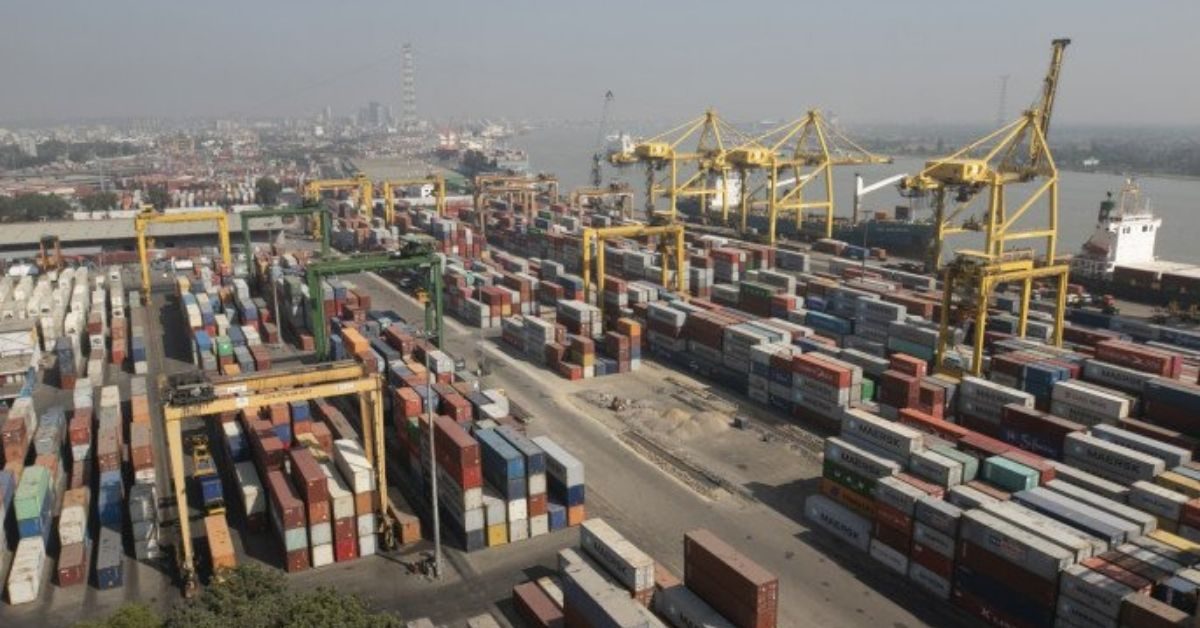The port users, shipping agents, and the Chittagong Port Authority (CPA) are in a tussle over a recent instruction issued by the port authority on “proper” palletisation of cargoes that comes in and goes out through Bangladesh’s major port.
Through a notification issued on 24 November, the port authority made mandatory proper packing and attachment of shipping marks on all cargoes in line with the set standard from 1 January or face legal actions.
“It is observed that in some cases proper instruction is not followed which creates complexities in stacking LCL cargoes and delivery of the LCL/FCL cargoes to the concerned C&F agents or consignees representatives,” the notification said.
“Besides, the risks of fire incidents are increasing since the cargoes are not being palletized and packed properly,” it added.
In the notification, the port authority requested all concerned to palletise/pack all the LCL and FCL cargoes according to the set standard for smooth and safe port operation accordingly. “Otherwise legal actions will be taken against the concerned as per the ordinance of Chittagong Port Authority with effect from 01.01.2023,” pointed out the port authority.
The notification irked the port users, particularly the garment exporters who are large importers of raw materials, as huge financial involvement is linked with the proper palletisation.
Moreover, packing the cargoes by using layers of plastic wrap-around (covering the respective consignments) and securing with wooden plank/frame structures will further enhance the risk of fire incidence since plastics and wooden plank are highly inflammable, they claim.
Faruque Hassan, president of Bangladesh Garment Manufacturers and Exporters Association (BGMEA), in a letter to the port chairman last week said the palletisation cost in Far East from where its member industries source their raw materials- is astronomically high and the difficult cost edge they are facing internationally will be further impeded.
“Our sector will be driven in a tight corner against massive competition globally and we would like to put in record that our assurance to the government on forthcoming export target will be severely compromised if you implement the contents of your referred circular,” he wrote.
In a scenario of foreign exchange limitations, the balance of payment conditions, tough competition from other countries, constraints on gas and electricity supply impeding the running of garment factories, “your circular which for us is a ‘bolt from the blue’ will only add fuel to the fire, which we would like to put into record as our note of caution”.
He said the part of the circular stating sans palletisation ‘risks of fire incidence are increasing’ is “arbitrary, of no basis and untenable”.
Additionally, he questioned the compulsory implementation deadline of the new measure from 1 January 2023 and termed the threat of taking legal action as “extremely unfair, illogical, impractical” as import laden containers and containers on board vessels both under pipeline for all practical purposes will continue to turn at CPA well into March 2023 as inbound from various global destinations.
“Trade and commerce is not conducted on overnight circulars and ‘firmans’ of concerned authorities. Rather is based on evaluation of cost factors and whether these new costing are commensurate to respective and individual importers and suppliers and ultimate garment buyers price tag pre-advertised several months before they arrive in the shelves apropos to and peculiar with on-coming respective seasons,” he noted.
Hassan requested the port chairman to withdraw or keep the new rule in abeyance pending further discussion with trade in general and the BGMEA in particular till the end of 2023.
Syed Mohammad Arif, chairman of the Bangladesh Shipping Agents Association in a separate letter to the port chairman also requested to postpone implementation of the circular and review palletisation/packing applicable on cargoes categorically for better understanding and removal of confusion of concerned parties.
He wrote that the circular has created serious confusion among shipping agents and their foreign counterparts because palletisation depends on different factors like size, nature, and buyer’s requirement of cargo.
He further noted that palletisation may not completely solve the apprehension of the risk of fire incidents. Moreover, general imports/break bulk cargo are being imported and stored in sheds without palletisation but incidents of fire have not been experienced on the question of palletisation.
CPA spokesperson Omar Faruk could not be reached for comment on this issue despite several attempts.







